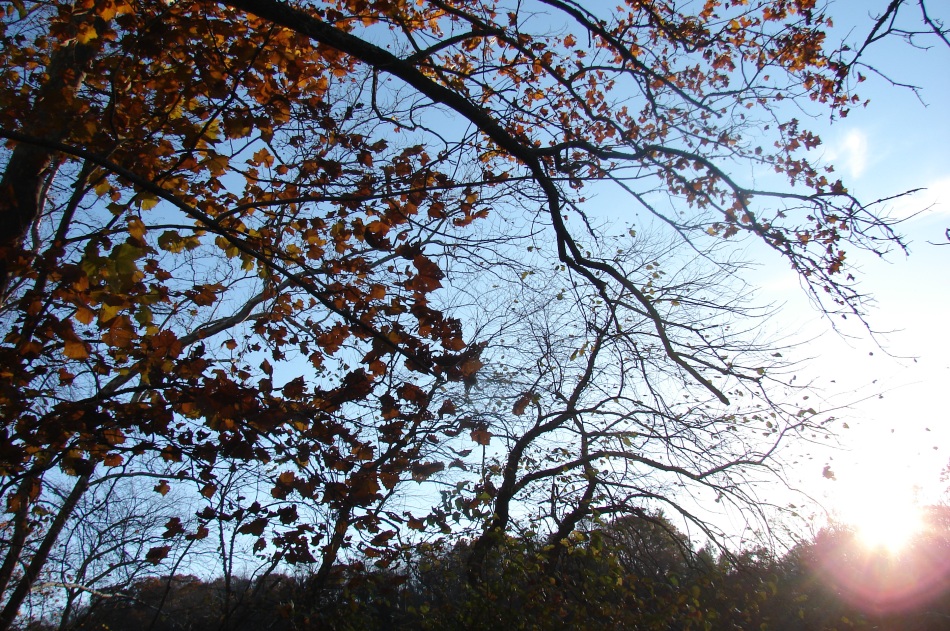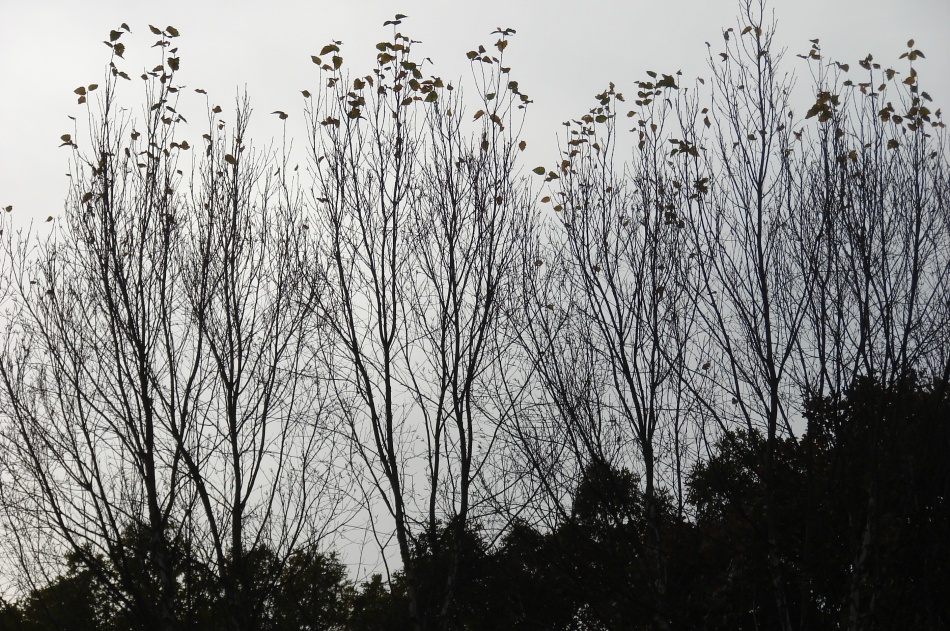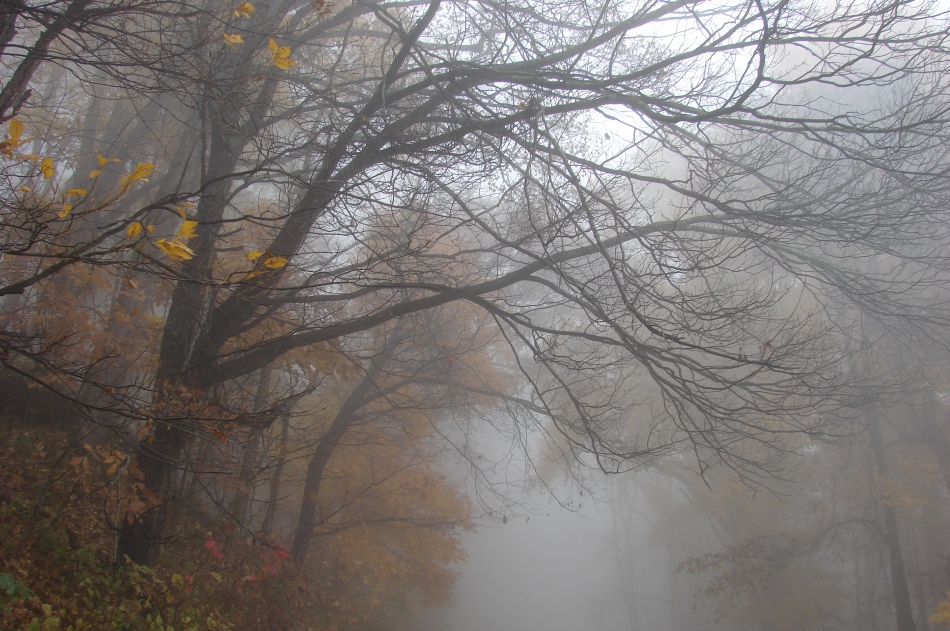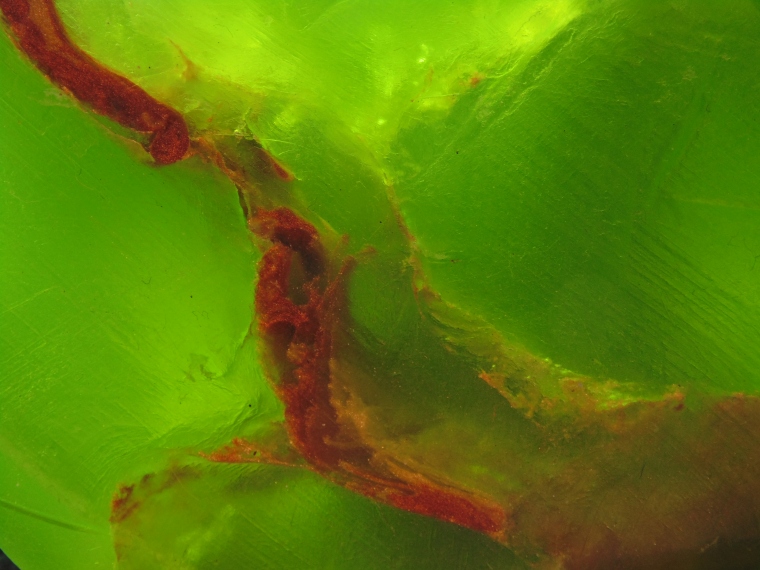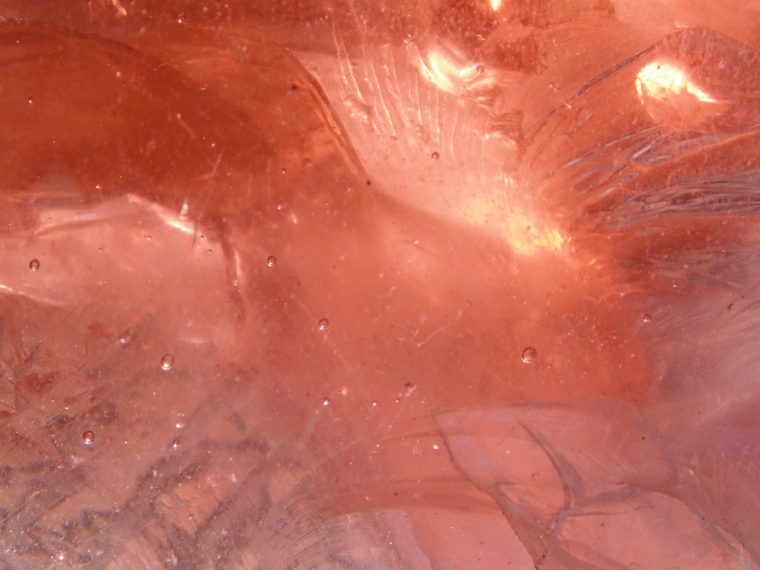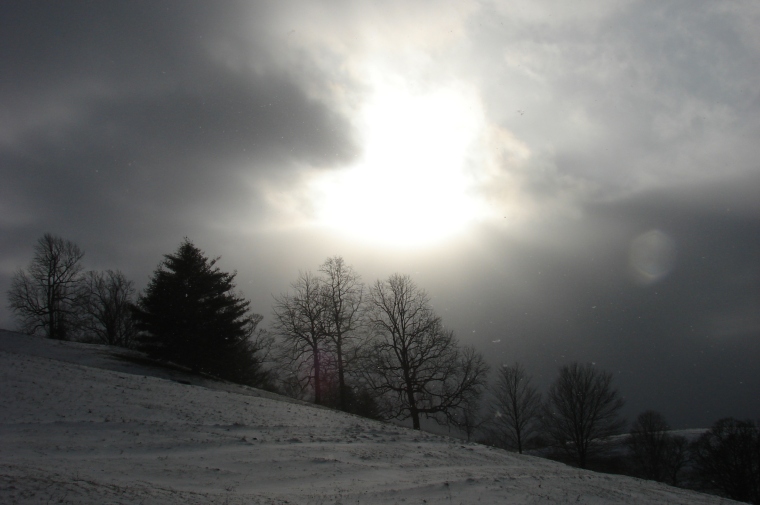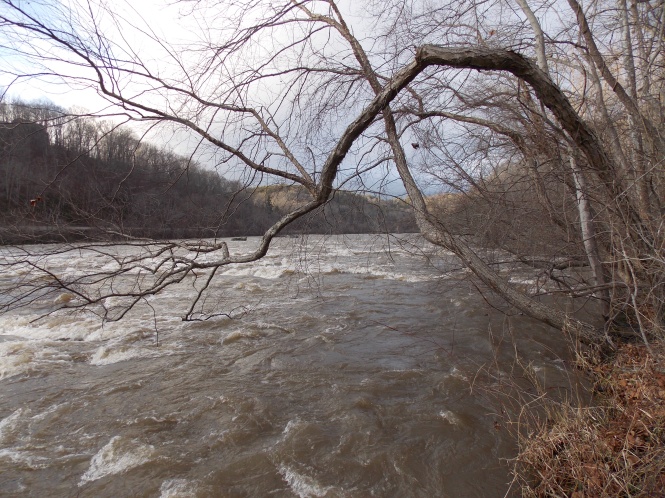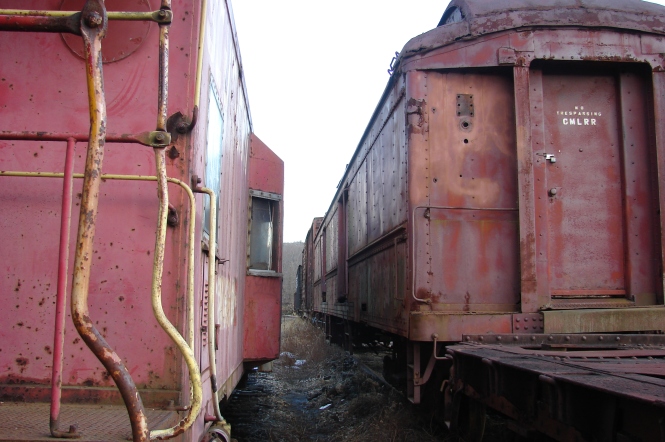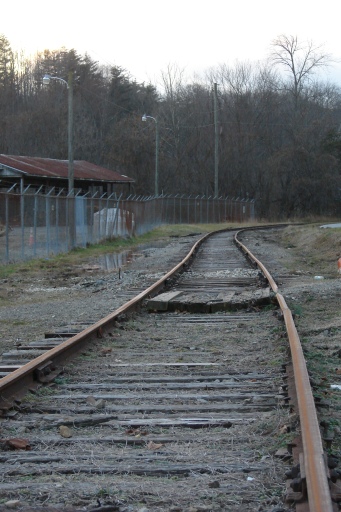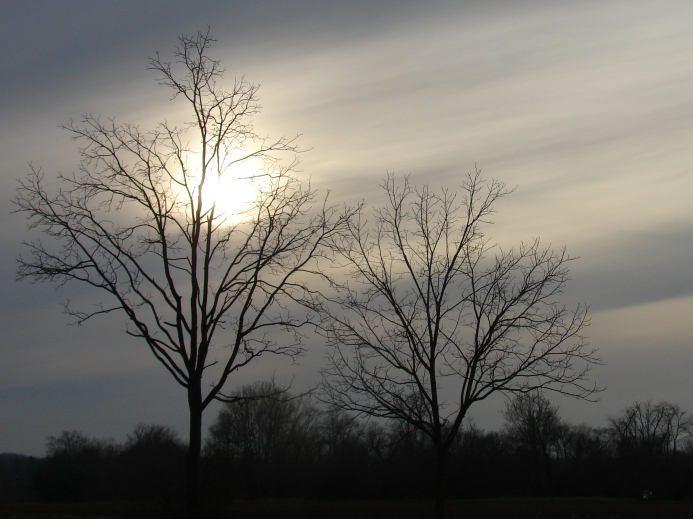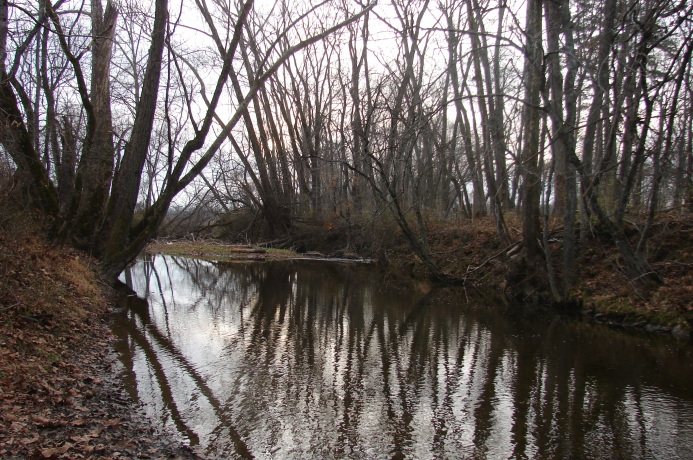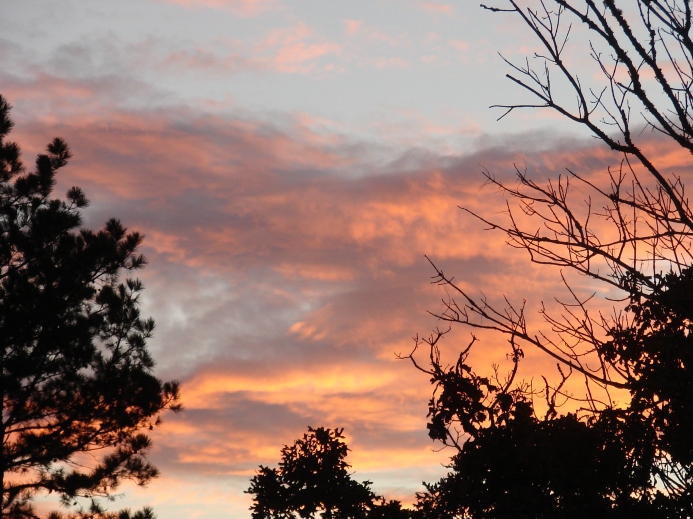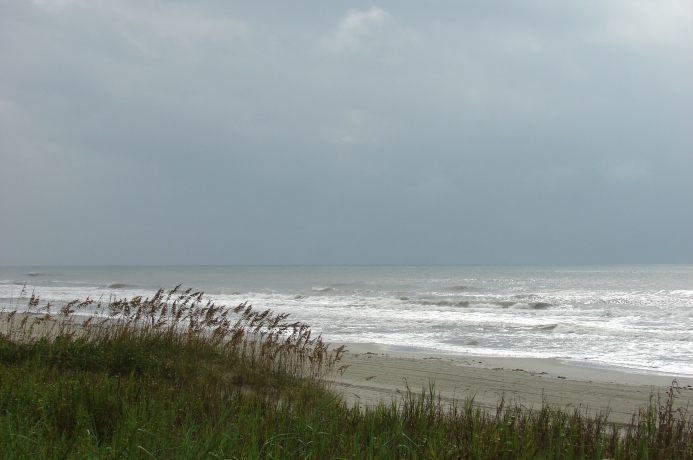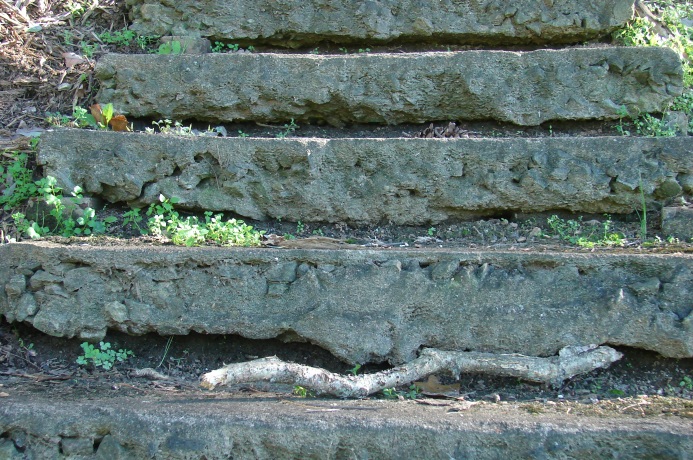4 a.m., May 3…….
Looking up from reading Wolf Willow
…the clock quietly ticking…
suddenly I’m not alone in the cool
lamplit room:
Stegner is sitting there in the squeaking rocker,
rocking slowly, by the cold wood stove.
He says nothing, just a wry smile,
a knowing look, deeper
than his starry Manitoba sky.
Facing each other in old worn chairs,
Beston and Borland muse about New England,
blue blizzards and lilacs, blowing
endless seasons across the ancient glacial hills;
how gold sunlight shimmers the steep sand,
the white sea birds, cold blue waters
sparkling, forever breaking, shaping
the outermost Cape.
At the black window, holding a red and silver
balalaika, Pasternak stands vigilant
in an embroidered peasant shirt, looking out
into tall bare birches, cold spring stars.
He turns to me with that perennial question
on his raw-boned Russian face, revealing
the deep pathos of shattered ideals,
of war, and loss.
Suddenly Akhmatova blows in from the night,
chilled, scented with passion and dried perfume,
broken loves like tender blossoms,
drops of blood on late spring snow ….
And over in the shadows sits
dark-eyed Jane Kenyon: her fingers resting
from gardening, from making luminescent words.
She puts down her half-empty glass of red wine
and crumbles old newspapers with split kindling.
Her voice is rich with flowers, and the sorrow
of killing frost, saying to the rest of us
“someone needs to build a fire”.
*
*
–Quilla
November 3.15
*
*
*
*
*
*
In Passing…..
Ogle, Filkins, Weaver, Banks…..old mountain names
carved in upright slabs of stone, facing east.
Weathering shadow-letters, chiseled numbers
of their brief years help us remember them
and let them go.
The cold gray stones want us
to have new faces, to find fresh ways
each passing moment
to love the ones still here.
November sun, rises
through bare trees. Morning wind
spins the last leaves down.
*
–Quilla
*
*
*
November 1.15
*
*
*
*
*
*
*
In Memory of John Parker
The last of 15 uncles died this week.
After his funeral, late this afternoon
I walked across the autumn fields alone
under windy grey skies.
There were crows calling in the distance.
Summer trees becoming skeletons again,
Cold wind tearing down the golden leaves.
*
*
–Quilla
October second, twentyfifteen
Now, after all the other flowers are gone
to seed, finished for the year,
the white, the lavender asters of October
bend down beside the backroads
along with sodden yellow goldenrods, wet
and heavy, autumn morning rain.
~
Out on the four-lane a big truck, loaded
and chained, large sawn dead logs black with rain,
swishes down the shining road, roaring
toward the mill.
Their long time of standing still, and tall
as living trees—deep flowery snowy forest,
great limbs singing with little birds, with wind—
is gone.
*
–Quilla
Tuesday, February 17.15
*
*
*
*
A Morning of Bitter Cold
(with homage to Boris Pasternak)
At the upstairs morning window, black coffee steams in a large white cup. The midwinter sun rises with pale frozen light. I read the rich, impoverished poems of old Russia—the ancient mothering land. She weeps for unknown millions of deaths from the Revolution and decades of totalitarian regimes. Her sorrow is that of a young peasant woman, a widow left with fatherless children, a weedy garden, a bottle of vodka and a balalaika. Hers are true songs from the hinterlands of the heart, the plucked strings of human joy, and pain.
The laughing aspens are always there, ever windblown. How their roots thirst down into the Slavic soil, fertile with blood and bones. The aspens release their windy yellow leaves spinning with wet snow like the veils of widows, wailing Orthodox funerals draped with purple and lace. Each night, the vast upturned bowl of Russian sky, deep with stars and black with grief, glitters down to the steppe’s black rim.
But I look up, and out into the present morning, these brittle frosted flowers of light. And again I am torn, looking back behind the mirror, and out into the world: a man born with one life, two thirsting souls. One endears the small pathetic words, the buried passions of humankind ravaged with personal wars. He knows they all secretly hunger— a few sweet crumbs of the broken, “the true and living Bread”. How the ancient holy writings rise in us with a nourishing mystery—the yeast of living Words— wanton to lift us into human love, to break our pride with the grist of divine truth.
Down below, scattered among the seeds I’ve thrown like words to the frozen ground, peck the pitiful and hungry birds. They steal out of the dark forest to feed. Each morning, I cherish the honest brotherhood of their warm and fragile blood. Summer and winter they eat and fight and love, weave nests and tend their eggs and fledglings with devotion, survive the hawks and the killing cold. They cast no votes.
But this other soul wants something more than words. He is forever looking out, a lean golden hawk. He is like the winter morning sun, finding far and close the wild and radiant communion of life, and death—-a complex community of warm lives, kindled with the one fire of all Being. He is vigilant, perched with talons fiercely clutched. Yet thrilled, watching storms and rising stars. He yearns the sleeping folded flowers to wake, and break open again, soft petals of fragrant pastel light. Listening, he hears the unwritten scriptures of morning wind, of hard blue frost, the lost flutter of wings. His spirit deeply feeds on the meager, hungering songs of a few winter birds releasing crumbs of praise.
How seemingly unlike, these two disparate souls! Yet they live in the one man, so variously in love—with the one wild and tender God.
*
*
–Quilla
Summer Evening Lament
*
*
*
*
Summer Evening Lament
In memory of David (“Joby”)
A dear one gone from us,
his spirit risen like a bird, flown.
Finally, heat and light go up—
the long day’s sun-baked stones.
Faintly, Navaho flute notes
float upward, into the pyre
of sunset clouds,
these lost threads of Pinon smoke
find deep shrouds of summer sky.
Our keen hearts hone, and listen:
just a slight dry breeze
stirs the tall grass stems,
the silent, summer-heavy leaves.
Cicadas keep that incessant wild
droning, some ancient yearning sorrow—
our quiet grief, screaming in the trees.
*
*
–Quilla
Epiphany…..February 10.14…….(revisited 2.20.14)
*
*
*
*
*
*
*
*
*
*
*
Epiphany/Redemption
(for Joan)
Those long-gifted with the radiance of joy—
we expect them to speak, but only words
sweetened with the countenance of hope.
How we love keeping souls
both good and bad, imprisoned:
stay there in the cell where you belong!
But we are called to steal the jailer’s keys
and set all prisoners free!
She herself is finally unchained, unafraid
and cares enough to follow her Lantern down
the dark stairs of love, among cool cellars
and tombs, and brings up the cold shadow-relics
carefully hidden there in buried rooms
and shows them to herself, to us at last —
—see, how the sunlight burns them
of spiders, time and dust, and turns them, glorious
white sea-birds soaring with windblown joy!
*
*
*
*
*
*
*
*
*
*
*
–Quilla
December 30.12
*
*
*
*
*
*
*
*
*
*
*
*
For Stephan
In the quiet wake of Christ’s
celebratory birth-lights—our wound-up chimes,
canned carols—His love packed away
in boxes, yet another year. . .
We exchanged gifts the day after.
Hearty sweetbreads, thin laughter, strong tea.
Later, we rode down to the railroad tracks, shining
in light rain, the winter river rolling past.
A few old Southern boxcars parked there
years ago, rusting. Garish strokes
of graffiti mock the long retirement,
the sad and useless beauty, fading.
Your first Christmas alone.
Your wife, my daughter, chose to go on
without you. We walk the rails, together
the freight of our separate griefs, alone.
We stand and watch the river, rolling brown
and full of winter rain, a frothy tide of waves
breaking back upon itself, resisting
the dark and seaward body of the flow.
We stand before the great turbulence—
future quickly comes, passes on downstream.
The old train cars stand empty, very still.
You took a few pictures, the broken couplings.
The rain-wet shining rails
stretch out far before us—diminishing
a long slow curve, the unseen distances
saying everything we could not say.
*
*
*
*
*
*
–Quilla
Newtown CT: For the Parents/For All of Us
*
*
*
*
For the Parents, For All of Us
Tonight again we anguish
facing such grim news-footage,
our worst nightmare:
This morning, Twenty
of our small children were murdered
in their classroom.
Fires of horror burn our very core
of life, of love:
for each of us, it is our child.
This, the first night of forever
we go on, without them
not kissing their little heads goodnight.
Instead, we taste the burning face of hell.
But why? WHY?
No answer comes.
Just a thin cold sickle of crescent moon
hanging empty, silent over the black trees.
“O Come, O Come, Emmanuel!
We mourn in lonely exile here…..”
*
“I AM the resurrection, and the Life” —Jesus
*
*
*
Oasis…..(you’ve crossed long years). . .
*
*
*
*
*
*
*
Oasis
(A poem for Communion, for Eucharist;
a ‘Medicine’ poem of surrender, of restoration—
for you, for me; in three parts. –Quilla)
1. Loss
Looking back from here—a rugged waste
of lost terrain stretches out behind you.
You’ve crossed long years
of desperate miles, made-up faces,
wandered empty desert places,
weathered the dry flood
of broken rocks and broken faith,
faded smiles, the fallen petals of roses.
Your favorite clothes, and your heart
are torn by long thorns,
now deep-stained the rust of blood.
Your neglected springs have gone, turned
to mouthfuls of bitter dust. Your soul drinks
and breathes the unrelenting siroccos
of human and satanic wind.
Those high-blown scarps of sand
keep screaming beguiling lies at you.
You walk outside the tent, look, and listen:
but wind erased all traces of the trail.
So you’ve learned to hole up in the shadows,
blame others, back against the wall
licking your righteous wounds
til falls the dreadful veil of dark.
2. Oasis
But here, a small sunlit stream comes to you,
bends before you now: the bright green lace
of water licks the broken stones.
In this place, the stream widens out for you
under the cool palm shadows of truth;
with easy grace, the peace of fragrant lilies
pours into a quiet pool.
It is time for you to stop.
Sit down here, take off your dusty shoes,
let Someone wash and kiss
your bleeding feet.
Allow your self: to feel the deeper coolness
wanting to soothe your fugitive, weary soul.
There is no other time.
Let your self receive, rejoice at last.
Allow your heart to grieve, to weep
the salty oil of past, and present sorrow.
Feel what you must feel, then let it flow
into the perfect stream.
No longer hide, or be busy, tough, religious
or even “spiritual”—to impress yourself,
your friends, or God himself.
Give up on all of that. In its stead, stay here
before Him, wait, and be still.
Let hurt go, watch it rise like wreathes
of smoke, like hungry flames
at last burned out of you.
Allow yourself to praise: express the deepest
thankfulness, for all of it.
Let your precious bitterness dissolve,
wash away like yellow fungus, crusted
layers on your hard and tender heart,
let it wash into the quiet, fathomless pool.
It is poured out here, for you.
3. Surrender
This holy war. Fierce battles,
so much blood, and time, already lost.
But Someone you ignored
walked up the rocky hill
and poured your empty goblet
red and full.
The fragrant living Bread
of His being is broken open, waiting for you
to feed: hundreds of pages, furious love, scribed
in the hovering shadows of doves.
Eat and drink—this risen Bread,
this crushed and holy Wine.
All of it. Stand completely healed
in the luminescence of forgiving love.
Savor the alien flavor, delicate scent,
the subtle radiance of halos, spun
with unnamed colors of holiness.
You can begin to hear the songs of birds
and feel the open sky.
Give thanks. It is given, for you.
Yes. It is for you.
*
*
“Your lovingkindness O LORD, extends
to the heavens, your faithfulness
reaches to the skies.
Your righteousness is like the mountains
of God; your judgments are like a great deep.
How precious is your lovingkindness, O God.
“And the children of men take refuge
in the shadow of Your wings.
They drink their fill of the abundance
of Your house, and You give them to drink
from the river of Your delights.
For with You is the fountain of Life,
and in Your light, we see light.”
–Psalm 36: 5-9
*
*
*
*
*
Watching Autumn. . .(reprise)
*
*
*
*
*
*
*
*
Watching Autumn
A quiet, almost windless morning, mid-autumn.
Wide swaths of early sun lay soft
long shadows on the land.
Now comes the yielding up, giving back the best.
The last sweet fruits must fall.
Shawls of rich color flare into the bright
darkness of late October air, like funeral flames
or flowers, so reluctant, letting beauty go.
Perhaps the ancient earth itself shows us
how to worship—breathing offerings
with no pretense, like wisps of incense
drifting up in fragrant matins,
our myths of Self disperse
in acts of morning praise.
Watching these dying autumn days
we do not pretend. Nor do we deny:
that something fierce in us of earth, more pure
than starlight piercing deep black sky—
the Creator’s beauty, His power lives in us
and wants to live forever, too.
*
*
–Quilla
October Night
*
*
*
*
October Night
Strong winds from the south
bend the night trees, tearing down
summer’s last leaves,
jangling the rusted chimes.
The closed windows groan
with long gusts, go silent, groan again
all the more, as if grieving in the dark
for some dear presence, gone.
Wakened by the wind’s low song
I go downstairs to read. And listen long
to the autumn night:
The rooms are quiet now, except
the interlocking clock-wheels clicking,
turning toward some distant dawn.
Beyond the walls, great trees howl
strong gusts from the south
—a storm approaches from the Gulf.
Beside me, a small grey moth
flutters round the yellow lamp
making large shadows, the silent walls.
*
*
–Quilla
Missing. . . .(revised 10.4.12)
*
*
*
*
Missing
We like to think we like ‘mystery’—
those clever conundrums, resolved
by pretty actors, fifty minutes on tv.
But true Mystery—sometimes God gives us
real and pain-filled drama,
scant and reticent clues.
We’re caused to stoop and crawl
our musty closets, face our blue mirrors
more deeply, perhaps find a trace
of something true among the rubble,
what’s been taken, lost.
But only precious clutter—
theater tickets, dried petals, empty shells
and dried seaweed, heartfelt cards
and messages left like footsteps in the sand.
The walls still hold the echoes of her voice.
Images on the refrigerator door
haunt us, twenty times a day.
They tell us nothing now.
The one we love has packed her things,
left her home, and gone.
We can not find her now: the one
who promised faithfulness and truth.
By her own choosing, a hard refusal
of those she loved, the words are gone
as summer flowers turn to autumn mist.
Still, those of us she left behind:
we’d like somehow to win the one we’ve lost,
replace the ravaged board of life, redeem
our broken pieces, pay what cost.
Yes. We’d like to think the force of wrong,
the Queen of Self, and her chosen pawn—
the easy lies She tells, so easily believed;
—that somehow She’s relented, given
a reprieve, let our dear one’s heart return;
that our earnest little pawns of prayer,
Love’s true words of searching light
with all the unseen might of faith
break through, depose the shadow Queen.
*
*
–Quilla
*
“We are not fighting against flesh-and-blood enemies, but against evil rulers
and authorities of the unseen world, against mighty powers in this dark world,
and against evil spirits in heavenly places.” —Ephesians 6: 12 (NLT)
“Do not be overcome by evil, but overcome evil with good.” –Romans 12: 21
End of Summer
*
*
*
*
*
Now the Goldenrods are losing luster
bending with days, and dust, cooler evenings
down the dry backroads.
As they have for centuries, farmers
burn the timeless fields—the year’s sweetness
of smoldering stubble—drifts away
with wreaths of smoke.
The wide old river runs low this time of year
mostly silent now, sliding quietly down
its ancient wash of stones.
Scribbled black calligraphies of crows
hearken into the sunset blush.
Harsh cries fade with distances, and dusk.
Summer’s last fireflies are twinkling little fires.
Memory tries to kindle, keep what it can—some light
or scent from all that’s gone from us, like smoke.
*
–Quilla
*
“All men are like grass, and all their glory is like the flowers of the field;
the grass withers and the flowers fall, but the word of the LORD stands forever.” –1 Peter 1: 24-25
*
September Eleventh (In Memoriam)
*
*
*
*
*
*
dead butterfly—
ragged wings, fluttering
soft September wind
*
*
*
*
*
Dealing with Sorrow, and Pain (September First, 2012)
*
*
*
*
*
Dead snag above the Blue Ridge
*
*
*
*
“Therefore, let those who suffer according to the will of God entrust their souls to a faithful Creator, by doing what is right”. –1 Peter 4: 19
*
“You will keep him in perfect peace, whose mind is fixed on You, because he trusts in You.” –Isaiah 26: 3
*
“Oh, do not keep looking at your pain, or sorrow, however great they may be;
but look up from them, let the gaze of your heart look beyond them—to your Deliverer—whose power is over them, and whose loving, wise and tender spirit is able to bring good to you out of them. Your part is to keep your eyes, your heart, your spirit, fixed on Him, trusting His redeeming love.
May the LORD lead you, day by day, along the right paths, and keep your mind stayed on Him, in whatever befalls you; belief in His love and hope in His mercy, even when you are at your lowest ebb, will keep your head above the raging billows.”
–Isaac Pennington (1617-1679)
*
*
November morning storm out at sea
*
*
*
Old Steps
*
*
*
August Eighth
*
*
*
*
*
*
*
*
*
*
An unexpected gift:
into deeply smoldering sorrows
it comes—settling quietly, opening softly
the cool, resilient, glistening wings
of Godly joy.
*
*
*
February first/ the Winter Beech
*
*
*
A dark morning, February first
brings a deep white cup,
pungent black tea.
With dry faith the pages rustle open:
broken, like old crumbs
the long table of days, the fallen crusts
of ancient Words.
Ashes in the stove are cold.
Some grey mornings, mild midwinter
I’m shamed to say
even the taste of God grows stale—
unable to stave these hungering pangs,
human hounds of unquenchable sorrow.
I’m sure He knows.
Put down the Book, put on
the old blue barn coat.
Hat and boots walk me deep
into the sticks of winter woods.
Another morning rain begins to fall.
In forest shadows a tall young Beech
stands there, gleaming white in the mist—
is she an angel, a ghost, merely a metaphor?
Or just a tree, whispering mysteries
in the moist wind, the thin bleached rags
of last year’s leaves?
*
*
–Quilla
Crows and a Rainbow
*
*
*
Warm mist blows through the winter trees.
Sensing Spring in the distance, sparrows
and finches start their trilling.
Flocks of crows approach far off,
tossed like torn black scarves of sorrow.
Late-morning sun breaks through,
a moment of silver opens the heavy clouds.
A rainbow to the darkened north
shimmers, a luminous promise
(or is it just a myth?)
the colors of God, glowing
in the winter mist.
*
*
*
What Can One Say?
What can one say—after all that’s gone, and come before this somber autumn day?
Sweet woodsmoke curls again above the frost. Fragrant scarves unfurl from the chimney
the warm feminine scent of shelter, of touch and cherished recollections—are these
all but lost?
^
Please say to me what one can say—when it seems the only birds left are crows, snarling beyond
the closed windows, harsh black caws in the oaks all day, that winter talk in the darkened woods.
When just a few tough leaves of summer linger, like closed scarlet hands, like claws of frozen blood?
^
What can one say—when what we fear is far too much to feel, much less, to talk about. But tell me
anyway: this time of year when we know that we are older, fragile and infirm, wandering further apart;
and a colder wind starts moaning again through the naked woods of each November heart?
^
What can one say—when gazing straight into the mouth of the storm-darkened North
through stripped birch trees, their thin, sere limbs shaking down the last gold leaves?
And silver balalaika tunes come quivering into our midnight rooms, weeping the agonies
of arguments and war, the tender vanquished joy of human love?
^
—Please tell me, while we’re waiting here with opened hands, another winter stalking down
the tundra sky with fear, the grey howls of hungry wolves tearing across the humbled land;
and we can’t help but see what’s been shattered, burned and damned, what can one truly say?
^
—Only this, but surely this with certain faith: out of the rubble, ravage, greed and death, the untold wastes:
One has risen, a Star at dawn among these fluttering candle flames, these broken reeds, redeeming what’s been
lost. His radiance is gleaming pure, above and beyond all time.
So find His beauty in His truth: a perfect Love that burns in the smoking fragments, the fleeting faces,
in all the moments that shine.
* * *

